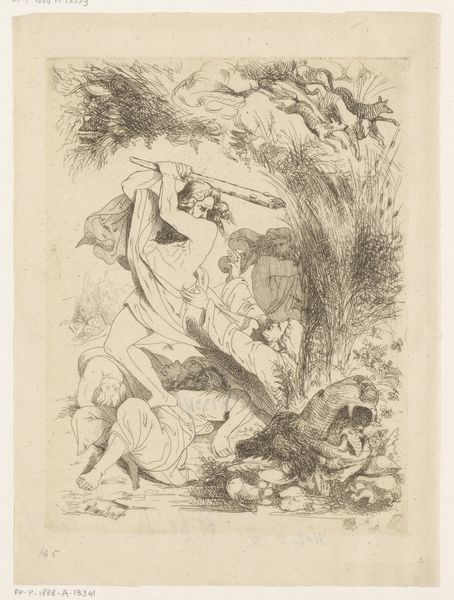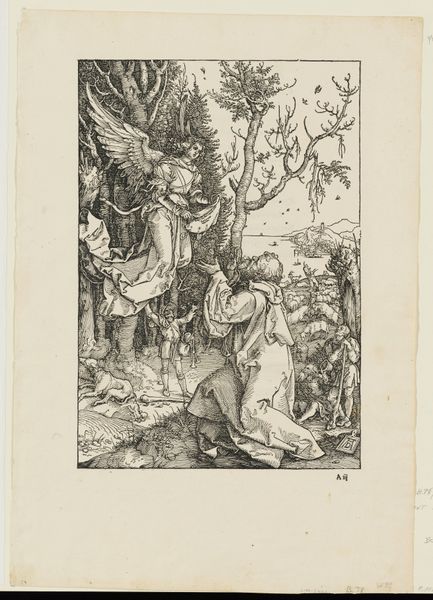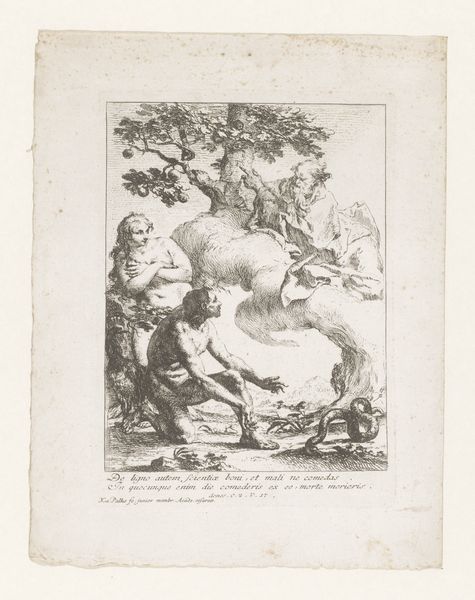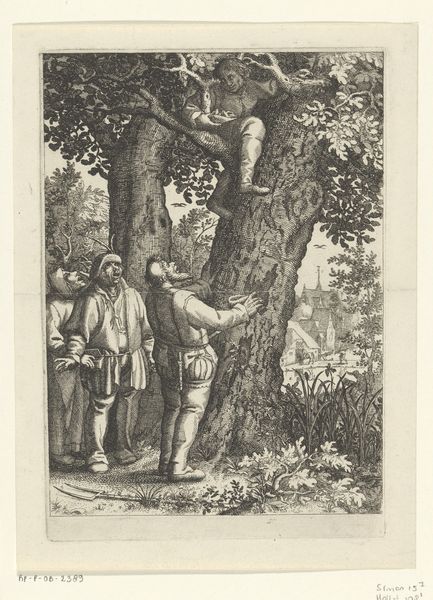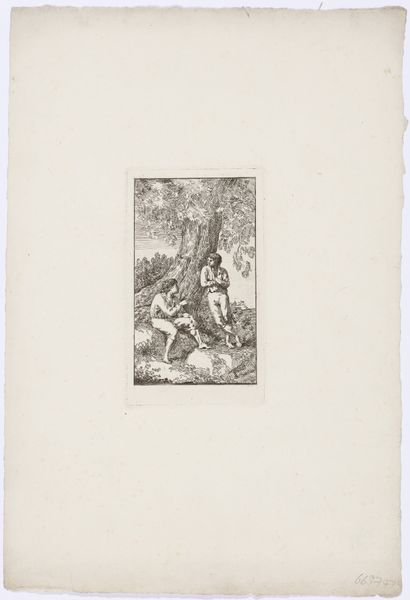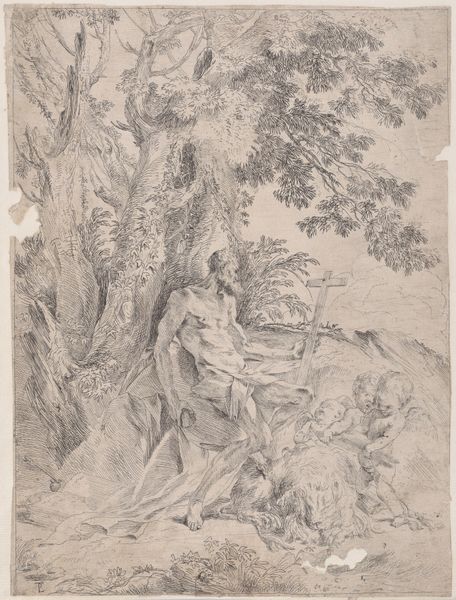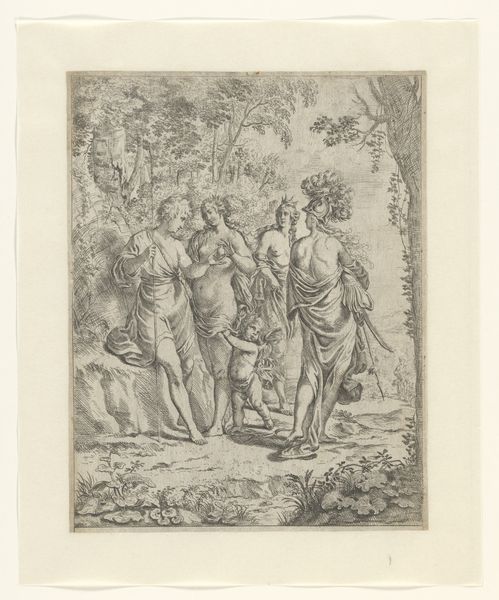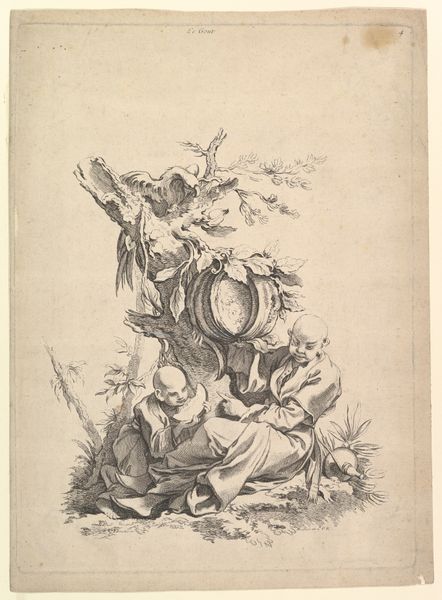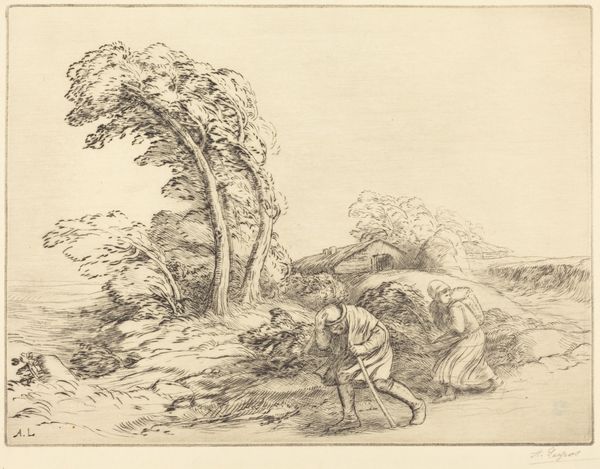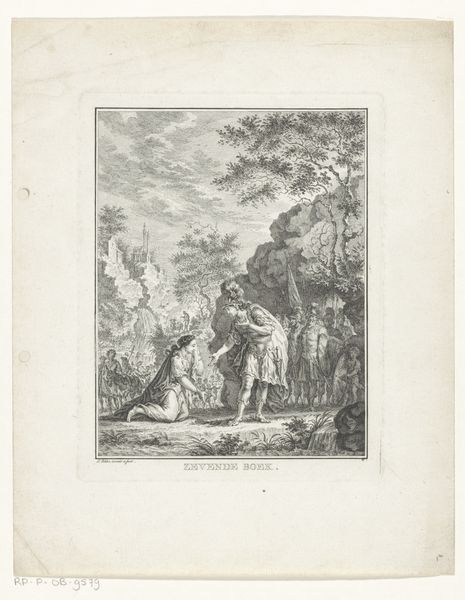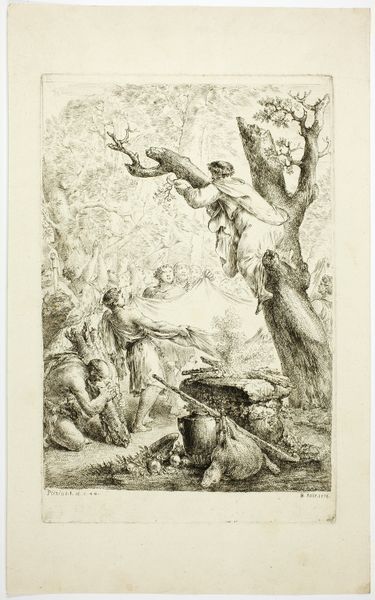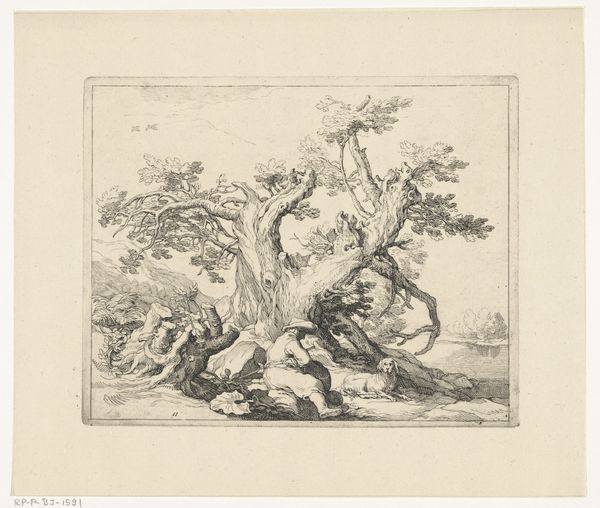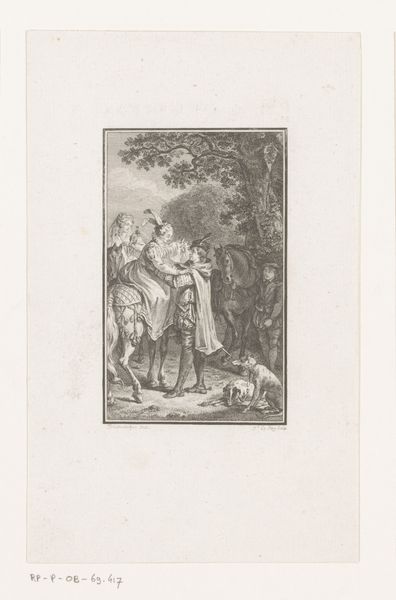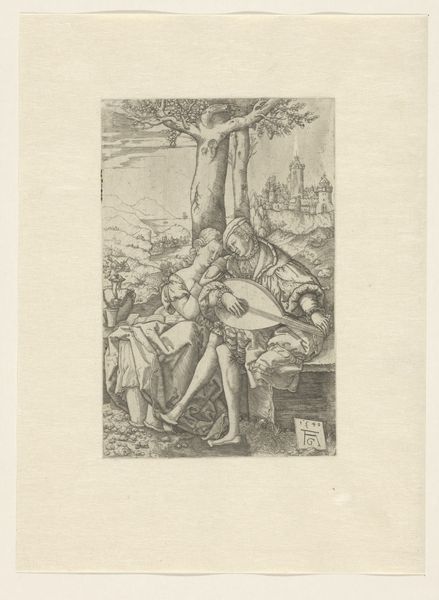
drawing, print, etching, ink, engraving
#
drawing
#
ink drawing
#
narrative-art
# print
#
etching
#
figuration
#
ink
#
romanticism
#
history-painting
#
engraving
Dimensions: height 183 mm, width 134 mm
Copyright: Rijks Museum: Open Domain
This is Heinrich Vianden’s rendering of ‘The Sacrifice of Cain and Abel’, an etching. Vianden was a 19th-century artist, and the style here echoes a much earlier sensibility. The depiction of Cain and Abel’s story is fascinating when considered in the context of 19th-century societal norms and power dynamics. Traditionally, Cain’s rejection is interpreted as a consequence of offering agricultural produce rather than animal sacrifice. But what if we consider this narrative through the lens of labor and social status? Abel, the shepherd, presents an offering of animal sacrifice, in contrast to Cain's, the farmer. Perhaps Vianden’s work prompts us to contemplate the value placed on different forms of labor and how divine favor is seemingly linked to certain professions over others. Are we looking at an early commentary on class division and the perceived worthiness of different livelihoods? The intensity in Cain’s posture speaks volumes about the weight of rejection and perceived injustice. How does this biblical tale reflect societal biases present in Vianden’s time?
Comments
No comments
Be the first to comment and join the conversation on the ultimate creative platform.
